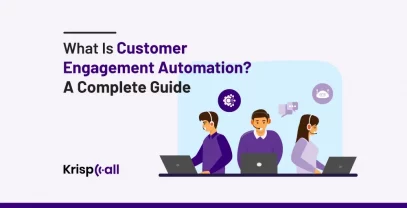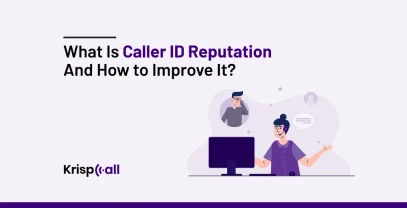Traditional marketing methods can be slow and cumbersome when targeting a wide customer base. To overcome these challenges, many businesses have adopted channel marketing as a more efficient and streamlined approach, aligning it with the principles of growth marketing.
This strategy involves partnering with other businesses to sell products or services, transforming how products reach consumers, and optimizing marketing efforts.
Channel marketing has become a cornerstone in today’s business landscape. It serves as a bridge between business products and consumers 🤝, allowing companies to focus more on developing quality products and less on the complexities of marketing. Despite its growing popularity, some businesses are still unfamiliar with channel marketing.
This blog is your comprehensive guide to channel marketing. We’ll explore its definition, share examples, discuss the benefits, and address potential challenges you might encounter along the way.
🔐 KEY HIGHLIGHTS
- Channel marketing is a strategic plan that allows businesses to sell their products through multiple channels and partners.
- Developing a channel marketing partnership requires selecting the right partners, building strong relations, creating marketing programs, and measuring performance.
- Channel marketing benefits are easier reaching target audiences, cost-efficiency, providing customer insights, large customer reach, and prioritizing important strengths.
- Channel marketing comes with challenges such as a lack of access to analytics, advanced strategies, expertise, control, and channel partner alignment.
- Tips like choosing the right partners, primarily focusing on your brand, developing public relations, and offering training to employees are vital for the succession of channel marketing.
What is channel marketing?
Channel marketing is a strategic approach where businesses engage third-party partners, such as distributors, retailers, or agents, to sell their products or services.
This strategy gives businesses an opportunity to benefit from their partner’s resources and expertise, including customer bases, business networks, and marketing channels. This results in more probability of increasing brand recognition and sales and access to multiple local markets.
Let’s take an example of the smartphone you are using daily. After the manufacturing plant, the smartphones get shipped to the distribution centers. Again, those smartphones are distributed to multiple regional retailers. Those regional retailers include mobile carrier stores and other online marketplaces, and finally, customers purchase the product. All third-party entities involved in this whole process are called channel marketing partners.
Examples of channel marketing
Businesses can promote their products through various forms of channel marketing, including partnering with retailers, teaming up with distributors or resellers, and using affiliate marketing programs.
Below there are some of the channel marketing examples:
Retail partners: Manufacturers partner with retailer partners to sell their products or services. For instance, Apple collaborates with electronics retail partners like Amazon and Best Buy to sell its products, such as iPhones, MacBooks, and iPads.
Distributors: The manufacturer joins hands with distributors to sell the manufactured products to retailers. For example, food distributors purchase directly from farmers and distribute them to other local markets.
Resellers: Businesses that buy goods from distributors or directly from manufacturers and sell them to other businesses are Resellers. For example, Best Buy is an LG reseller that resells TVs manufactured by LG.
Value-added resellers (VARs): These are the same as the resellers but sell by adding or providing additional services. For instance, computer manufacturers can collaborate with VARs, adding valuable software before selling products or services to other businesses.
Affiliate marketing: A manufacturer partners with affiliate marketing to promote products and earns a commission for every sale generated. For example, Influencers promote products through their social media accounts and gain commission on each sale.
How do you develop a channel marketing partnership?
Channel marketing partnerships involve multiple channels for distributing your products to consumers. Developing a channel marketing partnership can be challenging if you lack a roadmap.
Here are the steps to follow for developing a successful channel marketing partnership:
1. Identify the right partner
First, carefully research and analyze the product’s past records of the partners, what type of products they sell, and in what markets. This analysis is vital and must be technical to find a suitable partner for you. This involves answering questions such as how, where, when, and why you need the marketing partner. With this, you have a clear-cut direction and purpose for research efforts for an effective sales promotion.
2. Build strong channel relationships
After you decide on a potential partner, try building strong relationships with them. Convince them to team up to benefit both of you. While communicating with them, consider explaining how your collaboration is helpful for them. This creates excellent channel partner management.
3. Develop effective channel marketing programs
All set? Now, write an agreement with clear and understandable details for both parties. This establishes a bottom line for all the agreements. Start working to develop more effective channel marketing that leverages your and your channel marketing partner’s success. Also, ensure that you create proper talent management within your business.
4. Performance measurement and optimization
Start your channel marketing partnership and promote your product widely with your channel marketing partner. However, creating channel marketing with your new partner is not enough to sustain you in the long run, so consider measuring the performance of your products. Do experiments and find out which channel marketing suits your products the most and creates more sales.
What are the benefits of channel marketing?
No customer will learn about the new or existing products and services that solve their troubles through the manufacturer, which is why channel marketing strategy is vital.
Here are some of the benefits of an effective channel marketing strategy:
Easier to reach customers
Channel marketing strategy means that we have multiple distributors and sales channels through which you can reach a broader range of customers.
It is never possible for the manufacturer to reach out to each customer who requires the product they make. But with local resellers and other sales partners, this gets easier. Often, customers are looking for content.
If the reseller mentions your products on their posts through different customer engagement platforms, that creates more sales opportunities. Marketing partners promote products through multiple local resellers and create an easier way to reach customers.
Provides cost savings
If you include a new location for your distribution, you’ll require a large amount of money in terms of time and human resources. However, using an existing distribution network in that area can simplify the whole process and make it cost-saving.
Retailers put your products on their selves, allowing customers to buy directly without the need to order them online. This saves on delivery expenses. Also, local resellers have more customer trust, which impacts the increase in sales.
Provides more customer insights
This is quite understandable. Regional resellers have their specific area and targeted customers. Understanding the customer’s experience and needs from their POV is much easier.
Feedback is always important for any product manufacturer’s business. Information on customer behaviors allows manufacturers to change product features or address issues. A channel marketing strategy provides valuable customer insights that help manufacturers grow further.
Wider customer reach
With a channel marketing strategy and partners, you can distribute your products in a wider geographical area. Since already established distributors have a stronger connection with the customers instead of wasting time to grow customer trust and win customer success.
Working with channel marketing channels enables you to connect with international companies that specialize in distributing products in multiple areas. Ultimately, channel marketing partners have more skillful expertise that brings your products to broader customer reach. This costs a lot if you do it on your own.
Concentrate on your primary strengths
While working with channel marketing partners, you can free yourself from the ground hassles of promoting and selling your products to each customer.
For instance, if you ever try business scaling and expanding it to an unfamiliar place, you will require a local expert who knows and understands the area’s customers’ needs and wants. Handling this all can be a big hassle.
However, if you have a local channel marketing partner to handle tasks such as production distribution, order and inventory management, and customer relationships, it frees up your time to focus on your core strengths. You can then dedicate more attention to activities like designing, researching, and developing products.
What are the challenges in channel marketing?
Channel marketing undoubtedly provides numerous benefits to businesses in various aspects. However, to take advantage of all these benefits, you must prepare yourself for some challenges.
Here are some of the channel marketing challenges:
Lack of access to analytics
You will be using the marketing partners’ personal platforms, and they might not be ready to share their analytics or provide access to reports regarding their marketing strategy. This becomes a challenge for you because you won’t be able to measure the productivity of their campaigns.
Less advanced marketing strategies
In channel marketing, you will never know how they operate and use which technologies. Channel marketing partners often keep sensitive information confidential, even from you. It’s possible that your partners could be small businesses or entrepreneurs who may not have access to the most advanced platforms.
Lack of expertise
Your channel marketing partners are not expert marketers, or they may have limited knowledge of marketing and may not have enough knowledge about your product. This is not their fault, though, since they do their best to provide a reach to wider customers that you can not achieve alone.
Lack of control
Lack of control is a significant concern in channel marketing. As discussed earlier, your partners can create and distribute content in ways they see fit, which can enhance your brand when done effectively. However, if they produce inaccurate messaging or content that doesn’t align with your brand values, it can potentially damage your brand’s reputation.
Channel Partner Alignment
When implementing a channel marketing strategy, there is a huge gap between your specialization and knowledge and your partners. If you decide to launch a particular campaign, they will probably not know the technicalities and objectives behind how promotion works. These factors are barriers to having a better alignment with the channel partner.
Tips to make channel marketing successful
Channel marketing benefits a business by reaching a wider audience, generating more sales, and contributing to its growth. However, not all channel marketing is successful.
Let’s look at some of the tips that can make your channel marketing successful:
- Choose the right partners: Yes, channel marketing strategy is useful and helps a business reach more potential sales, but only if your marketing partners are good. Consider researching before you partner with any distributors, retailers, or resellers. Analyze their past records and select the right partners to increase product visibility and sales across multiple areas.
- Focus on your brand: You must prioritize your brand over your vendors. While your vendors’ brands are undeniably important and significantly impact your product’s success, they should not be more important than your own brand. Prioritize to increase brand recognition and never depend completely on funds from partner programs.
- Develop internal public relations: Every business is divided into multiple teams that perform work in their specific missions, including the marketing team. You should make it clear that every employee understands the channel marketing strategy. This will let you know other employees’ ideas and add value for the best result.
- Provide training and support: Not every team member knows enough about the channel marketing strategy. They require proper training and support for aligning with the marketing partners and their work. Proper training allows you, including all the employees, to formalize the marketing processes and develop good relations with the partners.
Conclusion
Channel marketing strategy enables businesses to promote their products by partnering with distributors, retailers, and resellers. These strategies focus on channel partner management by reaching a wider range of customers. Businesses gain customer insights through marketing campaigns and use them to modify, develop, and innovate products.
Businesses nowadays are very familiar with channel marketing and are utilizing its advantages for their company’s growth by optimizing a successful channel marketing strategy. Selecting the right partners is considered one of the most important factors in making channel marketing successful. Also, remember to prioritize your brand over your vendors, conduct training, and create a strong bond with the channel marketing partners to succeed in your channel marketing strategy.
FAQ
What is the role of a channel marketing manager?
Channel marketing managers create and implement all marketing programs focusing on specific channels for promoting products or services. This includes creating marketing plans, staying updated with trends, and coordinating with the marketing team.
What is channel strategy in marketing?
A channel strategy in marketing is a strategic plan that establishes a connection with your customers and fulfills their needs through multiple marketing channels. It could be both online and offline.
What is your channel marketing strategy?
My channel marketing strategy includes researching and selecting a suitable partner, establishing a strong relationship, and consistently measuring the company’s growth. Market Strategies can vary according to the business needs and requirements.





